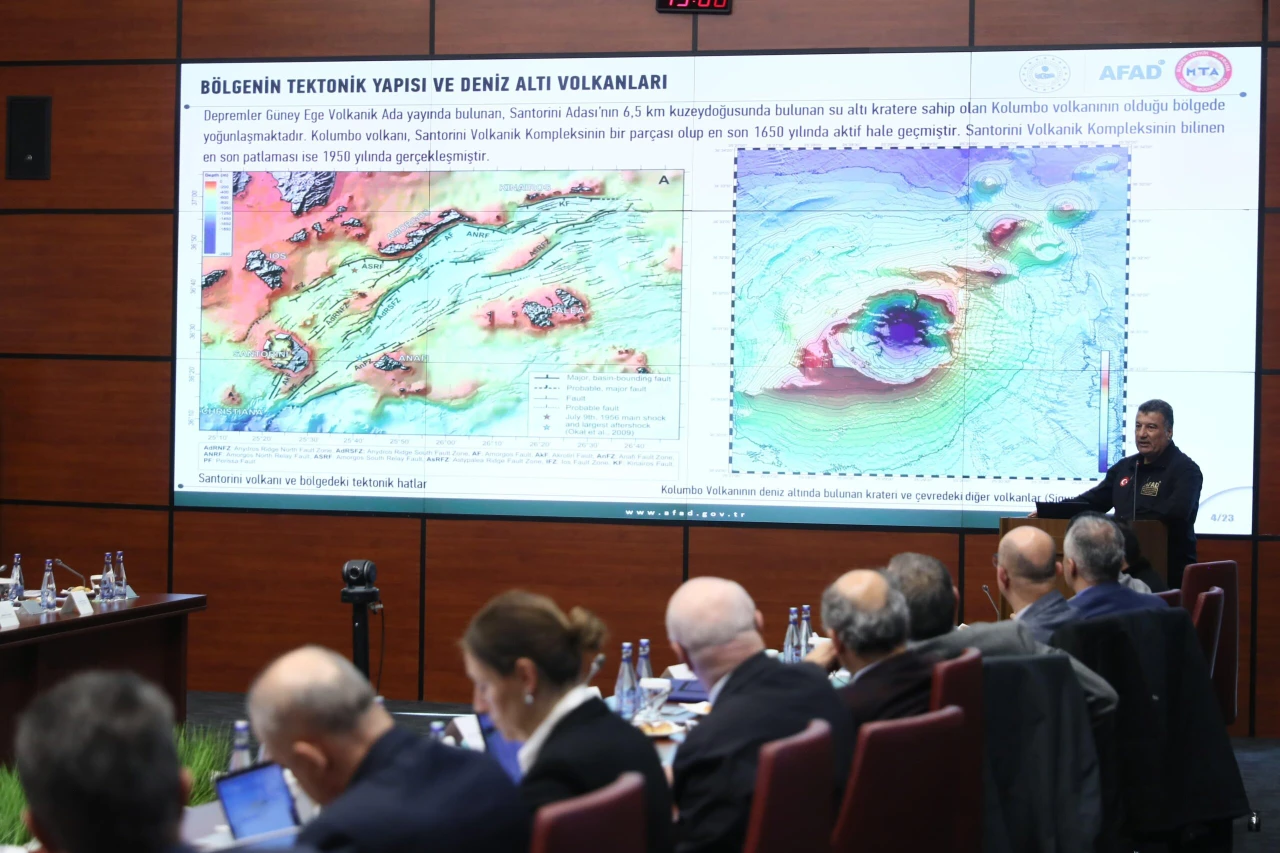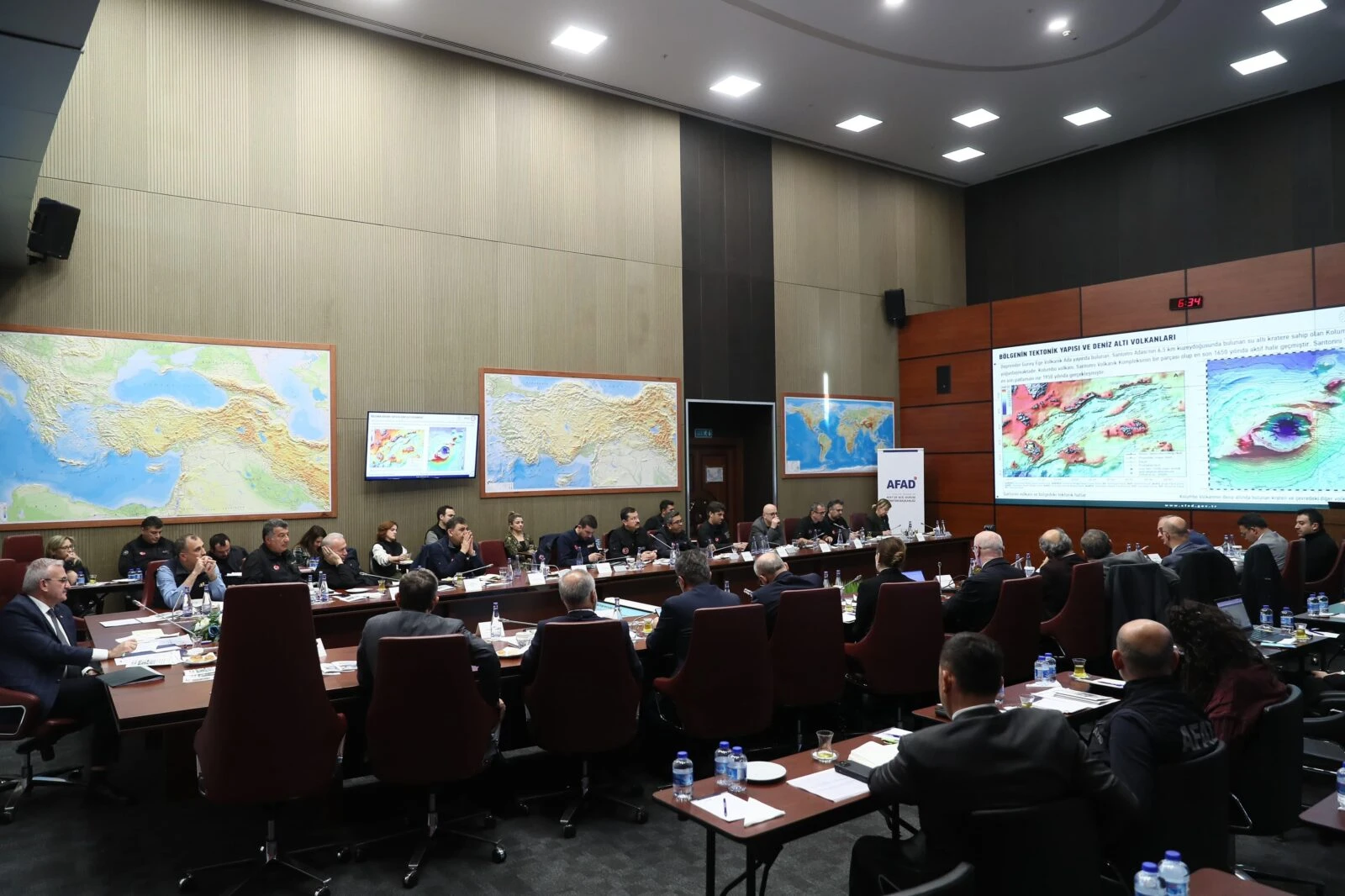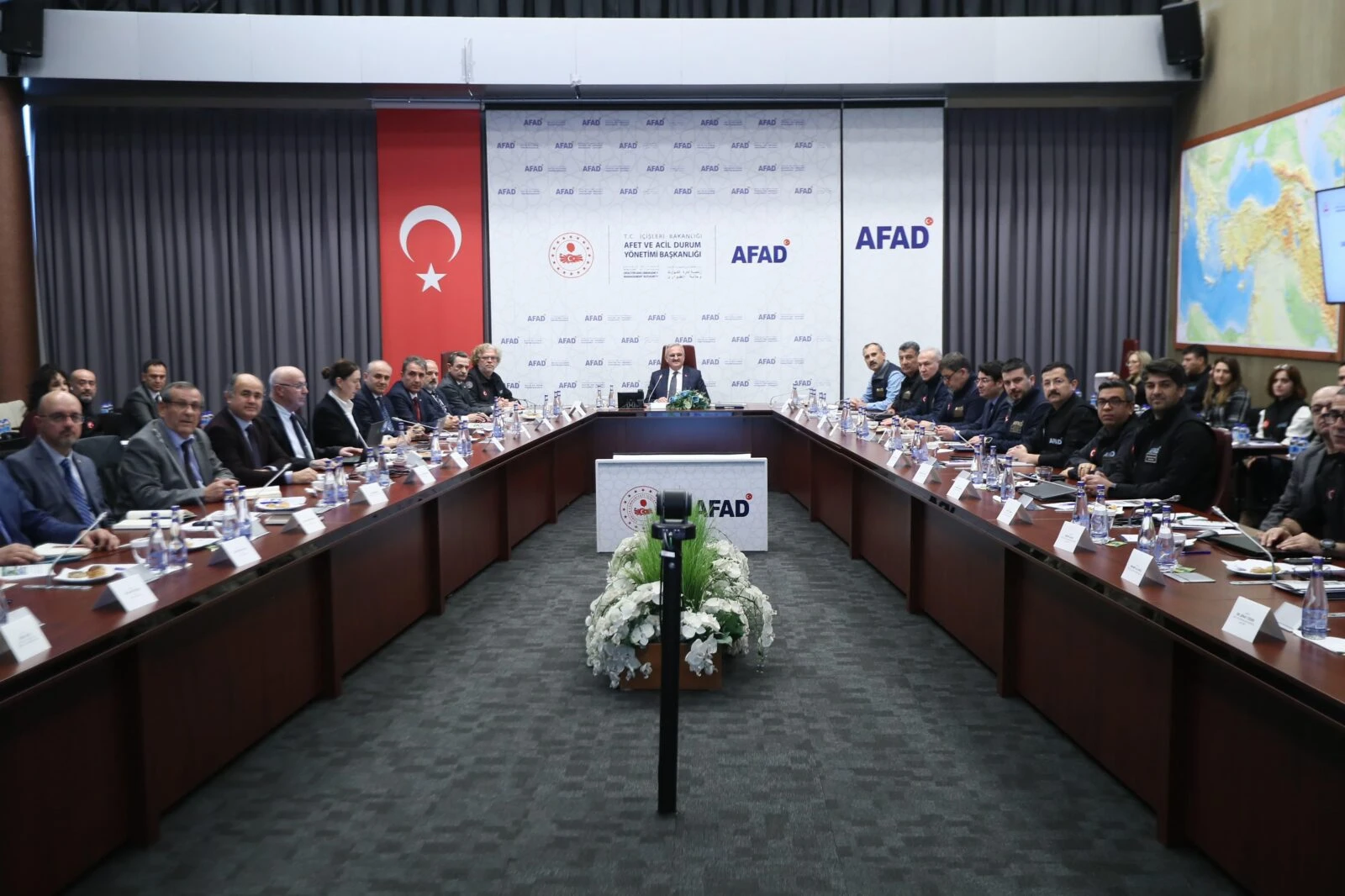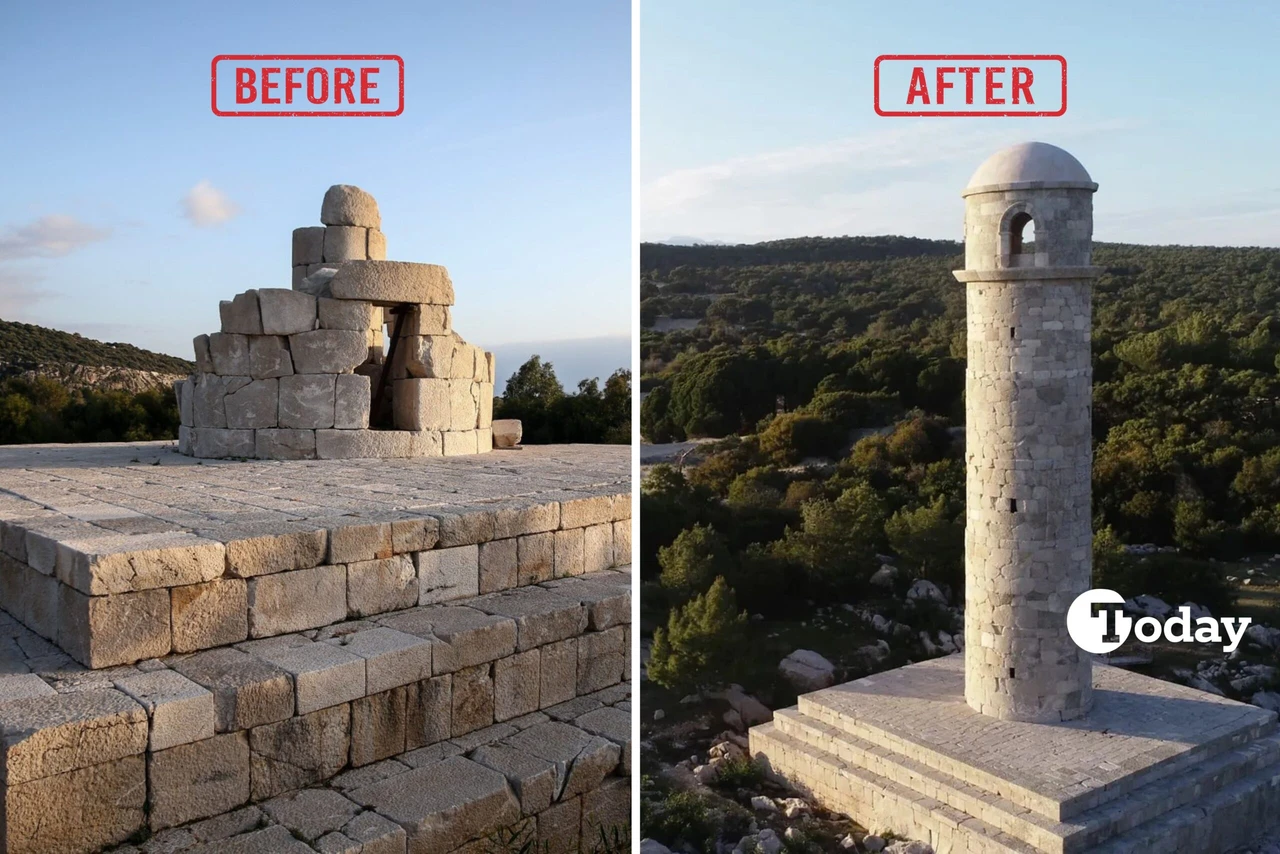Türkiye holds emergency meeting on Santorini seismic activity, potential risks
 Footages from the meeting conveyed by the Disaster and Emergency Management Authority (AFAD) about the earthquakes in Greece. (Photo via X / @AFADBaskanlik)
Footages from the meeting conveyed by the Disaster and Emergency Management Authority (AFAD) about the earthquakes in Greece. (Photo via X / @AFADBaskanlik)
The Disaster and Emergency Management Authority (AFAD) convened a high-level meeting on Feb. 7 to assess ongoing seismic activity near Greece‘s Santorini Island and its potential risks for Türkiye.
Officials reported that the number of earthquakes exceeding magnitude 3.0 had reached 761, with the strongest recorded at magnitude 5.2.
Assessing Seismic swarm in Aegean Sea
According to AFAD, seismic activity has been escalating in the Aegean Sea, with tremors centered approximately 25 kilometers northeast of Santorini.
Earthquakes in the region range in depth from 5 to 25 kilometers, with the closest tremor to Türkiye’s coastline occurring 140 kilometers offshore.
The ongoing activity is concentrated near the Kolumbo submarine volcano, which last erupted in 1950.

Potential tsunami and volcanic hazards
AFAD’s statement emphasized that while the likelihood of a volcanic eruption remains low, historical data indicates that a major eruption could disperse fine volcanic ash over a wide area. Additionally, experts warned of potential tsunami risks in the event of a powerful earthquake in the region.
The assessment referenced a 1956 earthquake on the Amorgos Fault, which had a magnitude of 7.5 and triggered significant tsunami waves.

Preparedness measures for Türkiye’s coastal regions
Authorities have ramped up precautionary measures in the provinces of Izmir, Aydin, and Mugla. AFAD has deployed mobile siren systems to alert residents in the event of a tsunami threat and reinforced coordination among emergency response units.
Additionally, AFAD has:
- Established a continuous monitoring task force comprising scientists from AFAD, the General Directorate of Mineral Research and Exploration (MTA), the Kandilli Observatory, and the Meteorology General Directorate.
- Enhanced emergency response capacities in Izmir, Aydın, and Muğla with personnel and equipment reinforcements from Ankara, Antalya, Bursa, Diyarbakir, Sivas, and Samsun.
- Integrated the Kandilli Observatory’s Tsunami Warning System with AFAD’s Disaster Management and Decision Support System (AYDES) for real-time tsunami alerts.

Scientific monitoring and international coordination
Meteorology authorities are compiling daily reports on atmospheric conditions and potential volcanic ash dispersion in case of an eruption.
AFAD also stated that experts will conduct briefing sessions in key coastal provinces starting Feb. 10. Ongoing cooperation with Greek universities and research institutions aims to facilitate scientific data exchange regarding seismic activity.
AFAD has urged the public to follow official sources for accurate updates and avoid misinformation circulating on social media.



